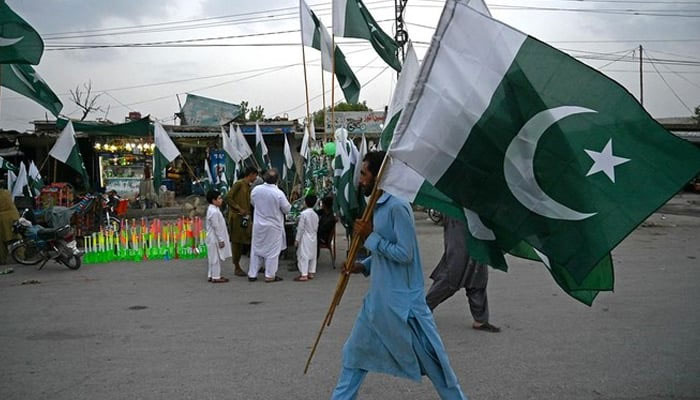The way forward
LAHORE: Despite the increasing poverty and persistent governance issues, improvements in credit ratings by Fitch or Moody’s, or a buoyant stock market, will not benefit ordinary people unless the issue of elite capture is addressed.
There is a noticeable disconnect between corporate profits and the broader economic wellbeing, coupled with a decline in the manufacturing and trade sectors. Our country faces systemic problems in governance, policy consistency and resource allocation, with evidence of elite capture evident in the growing wealth of the rich and the continual resource loss among the poor.
To combat elite capture, we must enhance governance and accountability. This involves implementing robust anti-corruption measures and ensuring transparency in the allocation of public resources.
While there is talk among politicians of disbanding the National Accountability Bureau (NAB), the real need is to make it a professional and apolitical institution, free from political interference.
We lack a long-term economic vision characterized by stable and consistent policies that outlast political cycles. Businesses require predictability for informed investment decisions. Rather than focusing solely on textile-centric policies, the government should provide incentives for investment in the broader manufacturing sector, including tax breaks, subsidies and simplified regulations. The focus should be on industries where Pakistan has a comparative advantage, such as textiles, agriculture and pharmaceuticals.
Small and medium enterprises (SMEs), which are the largest job providers, have been particularly hard-hit by the recent economic downturn. The state must support SMEs by facilitating easier access to credit, offering technical assistance and improving market access.
Trade policies should be reassessed to enhance Pakistan’s global competitiveness. This includes reducing tariffs on raw materials, improving logistics and infrastructure, and negotiating better trade agreements. Effective utilization of the China-Pakistan Economic Corridor (CPEC) is crucial for boosting trade and investment, especially in sectors like energy, transport and industrial zones.
To alleviate the immediate hardships faced by the poor, the government should expand social protection programmes. This includes implementing targeted subsidies, conditional cash transfers, and food security initiatives. Investing in education and vocational training is essential to equip the workforce with skills that match market demand, helping to reduce poverty and promote upward social mobility.
Restoring international confidence requires improved governance standards, particularly in public financial management and procurement.
A comprehensive debt management strategy is needed to avoid unsustainable borrowing and ensure that debt is used productively. Rebuilding trust, ensuring fair resource distribution, and creating an environment conducive to sustainable economic growth are critical for progress.
Improving corporate governance standards is also vital. Businesses must be not only profitable but also responsible and ethical, including fair labour practices, environmental sustainability, and corporate social responsibility.
It is essential to ensure accurate financial reporting and minimize opportunities for profit manipulation. Strengthening regulatory bodies like the Securities and Exchange Commission of Pakistan (SECP) is necessary for this purpose.
Involving civil society organizations, think tanks, and ordinary people in the policymaking process will help address policy flaws and ensure that policies are inclusive and reflective of the broader population’s needs.
-
 Kate Middleton, Prince William Share Message Ahead Of Major Clash
Kate Middleton, Prince William Share Message Ahead Of Major Clash -
 Is Dark Matter Real? New Theory Proposes It Could Be Gravity Behaving Strangely
Is Dark Matter Real? New Theory Proposes It Could Be Gravity Behaving Strangely -
 Viral AI Caricature Trend: Is Your Personal Data Really Safe?
Viral AI Caricature Trend: Is Your Personal Data Really Safe? -
 Lil Jon’s Late Son, Nathan Smith Spoke Highly Of His Father Before His Tragic Death
Lil Jon’s Late Son, Nathan Smith Spoke Highly Of His Father Before His Tragic Death -
 China Boosts Reusable Spacecraft Capabilities By Launching For The Fourth Time
China Boosts Reusable Spacecraft Capabilities By Launching For The Fourth Time -
 Bianca Censori On Achieving 'visibility Without Speech': 'I Don't Want To Brag'
Bianca Censori On Achieving 'visibility Without Speech': 'I Don't Want To Brag' -
 'Concerned' Prince Harry Future Plans For Lilibet, Archie Exposed
'Concerned' Prince Harry Future Plans For Lilibet, Archie Exposed -
 Skipping Breakfast? Here Are Some Reasons Why You Shouldn't
Skipping Breakfast? Here Are Some Reasons Why You Shouldn't -
 Billie Eilish Slammed For Making Political Speech At Grammys
Billie Eilish Slammed For Making Political Speech At Grammys -
 Beverley Callard Announces Her Cancer Diagnosis: 'Quite Nervous'
Beverley Callard Announces Her Cancer Diagnosis: 'Quite Nervous' -
 WhatsApp May Add Instagram Style Close Friends For Status Updates
WhatsApp May Add Instagram Style Close Friends For Status Updates -
 Winter Olympics Officially Open In Milan, Cortina With Historic Dual Cauldron Lighting
Winter Olympics Officially Open In Milan, Cortina With Historic Dual Cauldron Lighting -
 Sciences Reveals Shocking Body Response Against Heart Attack
Sciences Reveals Shocking Body Response Against Heart Attack -
 Who Is Charlie Puth? Inside Awards, Hits & Journey Of Super Bowl Anthem Singer
Who Is Charlie Puth? Inside Awards, Hits & Journey Of Super Bowl Anthem Singer -
 Jared Leto 'swings For The Fences' In 'Master Of The Universe'?
Jared Leto 'swings For The Fences' In 'Master Of The Universe'? -
 Kelsea Ballerini, Chase Stokes Not On Same Page About Third Split: Deets
Kelsea Ballerini, Chase Stokes Not On Same Page About Third Split: Deets




